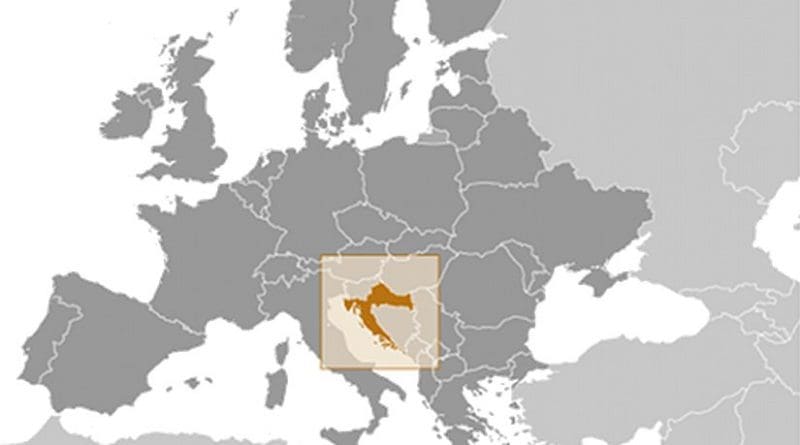Croatia Commemorates 26 Years Since Vukovar’s Fall
By Sven Milekic
Thousands of people from all over Croatia, Bosnia and Herzegovina, as well as Croats from abroad, came to the eastern Croatian town of Vukovar on Saturday to commemorate the fall of the town in 1991 and mourn its victims.
Representatives of war veterans and victims’ organisations from all over Croatia came to Vukovar, holding banners and flags. A special delegation from the eastern Bosnian town of Srebrenica also attended.
The Yugoslav People’s Army and Serb paramilitaries besieged and shelled the town intensively between late August and mid-November 1991. Some 7,000 missiles fell daily on the city throughout a three-month siege, which destroyed about 85 per cent of the buildings.
After the town’s defence fell – officially on November 18 – thousands of non-Serbs were expelled, thousands were transported to prison camps in Serbia, while hundreds were executed at the nearby Ovcara farm and in other places.
Over 3,000 soldiers and civilians died during the siege and its aftermath, 86 of them children.
As has become customary, political leaders, representatives of religious communities, war veterans’ organisations and victims’ families gathered in the courtyard of the Vukovar hospital on Saturday morning
There, the organisers – the town of Vukovar and war veterans’ organisations – played the national anthem, read poems dedicated to Vukovar and sang patriotic songs.
In the hospital’s courtyard, President Kolinda Grabar Kitarovic said that everyone has to focus on assuring a better future for Vukovar so that its population does not leave the town.
Over the past two decades, Vukovar’s population has fallen dramatically, from over 44,000 inhabitants in 1991 before the war to some 27,000 in the 2011 census.
When asked about relations between Croatia and Serbia – troubled by the legacy of the 1990s war and the siege of Vukovar – Grabar Kitarovic said that although there had been “a certain development”, Zagreb and Belgrade are still not on completely friendly terms.
“I [already] said – a lot of water will have to flow through the Danube before one can say that Croatia and Serbia are friendly states,” she said.
“Twenty-six years have passed since the tragedy and the great [number of] victims of Vukovar; [the tragedy] of all Croatian war veterans and civilians who gave [their] lives, youth and love for Croatia so we could live in freedom and democracy today,” Prime Minister Andrej Plenkovic said before joining the commemoration.
Plenkovic said the government is preparing a new law to aid Vukovar’s development, to give additional tax breaks and incentives to its inhabitants.
War Veterans’ Minister Tomo Medved meanwhile raised the unresolved problem of the missing persons from the war in Vukovar.
There are still 444 people considered missing in the area of the former Vukovar county.
“I must say that there is a lack of cooperation with Serbia and the [lack of] submission of reports and information on where the remains of our war veterans and civilians are buried,” Medved said.
After the short ceremony in the hospital’s courtyard, a long column of people, led by victims’ families and war veterans, walked a five-and-a-half-kilometre route to the memorial graveyard on the entrance to the town from the east, where the most of Croatian soldiers and civilians who died during the siege are buried.
After a short prayer from a Catholic priest, all political leaders, representatives of various political parties, counties and cities, as well as war veterans’ organisations, paid their respect to those who died during the siege.
After placing wreaths on the central monument on the cemetery, a religious service will be held on the cemetery.
The commemoration will end at 5pm, when lanterns will be launched into the Danube in the memory of the killed and missing war veterans.
Many other cities and towns in Croatia will mark anniversary by putting lighted candles in streets named upon Vukovar, or on their main streets.
Although the commemoration passed off without an incident, regional media hub N1 reported that a few people shouted the Croatian WWII fascist salute ‘Za dom spremni’ (‘Ready for the Homeland’) while raising their arms in a Nazi salute.
The Croatian 1990s paramilitary unit, Croatian Defence Forces, HOS, which fought in Vukovar, uses the salute, which is a part of its officially recognised coat of arms.

